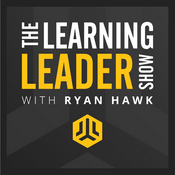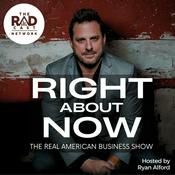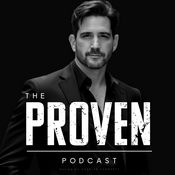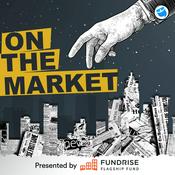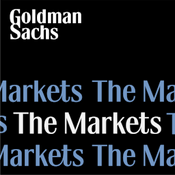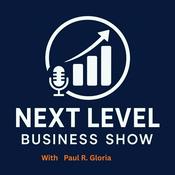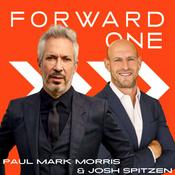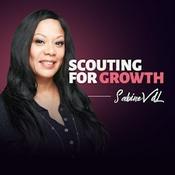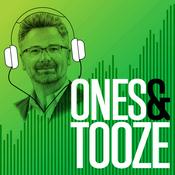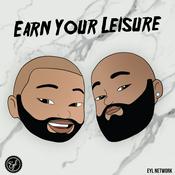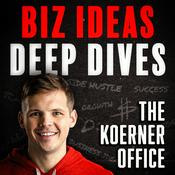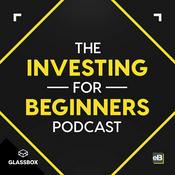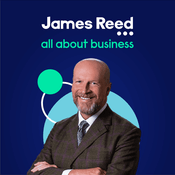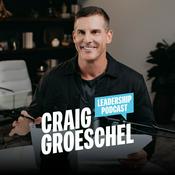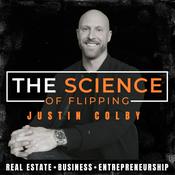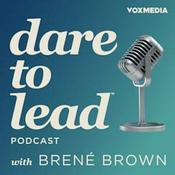114 episodes
- Do sales make your palms sweat and your heart race? Good. You're not alone. In this episode of The Lindsey Anderson Show, I’m joined by Paul Kuthe to talk about how fear isn’t the enemy; it’s actually our greatest teacher.
We dig into why sales feel uncomfortable, how fear shows up in business, and why playing the wrong role in your client’s story might be the real reason it feels so hard.
We also talk about how to reframe fear, step into the role of the guide, and use mindset and storytelling to show up more powerfully in the moments that matter. If you’ve ever wanted to feel less awkward in sales, more confident in leadership, and better equipped to take action even when you're scared—this one’s for you.
Whether you’re an online business owner or entrepreneur looking to scale, this episode will help you rethink fear and sell with more authenticity and impact.
Guest Introduction
Paul Kuthe is a National Geographic Explorer, a bestselling author, and the founder of Tributary Coaching.
He combines extreme sports coaching with high-performance psychology to help entrepreneurs, creatives, and leaders confront fear and take bold action.
From kayaking off waterfalls to coaching CEOs through high-stakes decisions, Paul brings a perspective that’s grounded in courage, clarity, and storytelling.
He’s worked with everyone from therapists to founders to celebrities, helping them stop white-knuckling it through life and business and start leading with purpose.
Reframe Fear & Start Selling With Ease - Key Takeaways
Fear isn’t something to eliminate—it’s something to reframe
The same physical symptoms of fear also show up when we’re excited—your body doesn’t always know the difference
If you feel stuck in sales, it might be because you’re playing the wrong role in the story
When you shift from “hero” to “guide,” selling becomes service
Your brain is wired to overreact to perceived risk—learning to override that is a skill you can practice
Acting in the face of fear is a muscle—and it gets easier every time you use it
What We Covered
Reframing Fear
Paul shared how his relationship with fear started as a whitewater kayaker. Running rapids and waterfalls naturally comes with risk, but he learned early on that fear could actually be a performance tool. Instead of trying to suppress it, he learned to work with it—to stay sharp, present, and focused.
That same principle applies in business. Fear is just a signal, and how we interpret it determines what happens next.
Sales and the Role You’re Playing
One of my favorite parts of this conversation was when Paul broke down how fear shows up in sales—and how often, it comes from playing the wrong role in the story.
When we put ourselves in the “hero” position, we unintentionally push our customers into roles like the victim or villain. That creates tension and discomfort. But when we shift into the role of the guide, the pressure drops. It’s not about convincing or closing—it’s about helping someone else win.
That shift alone can change everything about how we show up in the sales process.
The Neuroscience of Fear
Fear lives in the limbic system, the part of our brain responsible for emotion and instinct. It’s fast, it’s reactive, and it’s built to keep us alive. But our logical thinking—the part that can assess risk, make plans, and stay calm—lives in the neocortex.
Here’s the kicker: our fear brain is louder and faster. That’s why even when we know logically that something is safe, we still feel terrified.
The trick is learning how to pause, recognize which part of the brain is running the show, and then choose to act from the higher part—even if the fear doesn’t fully go away.
Action in the Face of Fear
Let’s get real: you’re not always going to feel ready. You’re not always... - In today’s episode of The Lindsey Anderson Show, I’m diving into the topic of bro marketing and why it’s no longer serving service-based businesses. If you're unfamiliar with the term, don’t worry–I’ll break it down for you. Bro marketing refers to aggressive, get-rich-quick tactics that have become increasingly ineffective as audiences have become more discerning.
This style of marketing isn’t aligned with most businesses anymore, leaving many entrepreneurs and online business owners frustrated and disconnected from their ideal customers. The pressure-filled sales tactics of fake scarcity and high-pressure pitches just aren’t working like they used to, especially with today’s online consumers who are more skeptical than ever.
Today’s guest is here to give us the scoop on what’s actually working now–and spoiler alert: it’s not another new trend or hack. Instead, we’re talking about going back to the basics and making those core strategies work for your business. If you're looking to grow your visibility, attract more leads, and close clients in a way that feels authentic and sustainable, this episode is for you.
Guest Introduction:
My guest today is Leslie Hassler, an author, speaker, and strategic business advisor who helps service-based business owners grow with predictable profits and less overwhelm. She’s the founder of Your Biz Rules, a fractional C-suite firm that helps businesses scale through hands-on strategy and leadership. Leslie is also the author of Scaling Rich, a book that’s all about growing your business without burning out, while ditching bro marketing for strategies that actually work. I’m so excited to have her on the show today, and I know you're going to walk away with some actionable insights on how to grow your business the right way.
Ditch Bro Marketing for Profitable Growth - Key Takeaways:
Bro Marketing: This approach relies on aggressive tactics that make the customer feel smaller, often using fake scarcity and high-pressure sales. While it may work for some, it’s misaligned with entrepreneurs and online business owners focused on sustainable growth and healthy customer relationships.
Post-Pandemic Trust Issues: With bad actors online and the rise of AI, customers have become more skeptical. Marketing needs to evolve to align with a more cautious and informed audience.
Customer Acquisition Through Aggressive Tactics: While bro marketing can bring in quick leads, those leads often aren’t the best fit for your business. The emotional, pressure-filled approach leaves customers unaligned, leading to poor long-term relationships.
The Valley of Despair: This concept describes the lowest point customers can hit when they feel desperate, which compromises their ability to make rational decisions and makes it harder for businesses to provide effective solutions.
Alignment is Key: Real success comes from aligning your marketing strategy with your values, your ideal customers’ needs, and long-term business goals. Misalignment leads to stress, burnout, and unsustainable growth.
Bro Marketing vs. Authentic Marketing:
Bro Marketing relies on putting customers down and using fear tactics to push them into making a decision. It often feels manipulative and misaligned with values. Authentic Marketing, on the other hand, focuses on understanding the customer’s real needs and offering solutions that build long-term value and trust. It calls people forward to be the best versions of themselves, while bro marketing thrives on fear and scarcity.
Client Relationships and Hope:
Leslie explains the importance of hope and belief in business. When clients are in the "valley of despair," they’ve often lost hope, which makes it hard to engage them meaningfully. Restoring hope is key for success. Clients... - Welcome to another episode of The Lindsey Anderson Show! Today, I’m diving into a topic that I’m sure many of you haven’t thought much about: legal protections for your online content. As entrepreneurs and online business owners, we show up online every day—creating content, generating sales, and building our brands. But here’s the real question: Is your business actually protected?
The truth is, many entrepreneurs are losing money, missing opportunities, and even getting taken advantage of because they haven’t protected their intellectual property. Whether you’re posting on social media, creating content, or launching offers, you need to ensure that your work is legally protected. Today’s guest, Robert Thony, is here to help us navigate this crucial area of business. He’ll be sharing how to protect your intellectual property before it’s too late. I’m so excited for you to hear this!
Guest Introduction
Robert Thony is the founder of Tony Law and Entertainment, a firm that specializes in IP law and business law. With over a decade of experience, Robert has been helping entrepreneurs, creators, and online business owners protect their work and secure better deals.
He’s an expert in trademarks, copyrights, contracts, and negotiation strategies. Robert has worked with countless brands to ensure they’re legally protected while continuing to grow. His goal is simple: to help businesses not only survive but thrive, all while being legally secure. Robert provides guidance on everything from brand protection to navigating the complexities of the digital world with legal insight. Let’s dive into the conversation with Robert!
Protect Your Brand and Business - Key Takeaways
Protect Your Brand Early: It’s critical to get your business structure right from the start. Whether you’re a consultant, or running a tech startup, choosing the right legal entity is key to protecting your business in the long run.
Trademark Protection: Your brand name and logo should be protected from day one. Register them with the US Patent and Trademark Office (USPTO) to prevent infringement and legal issues down the line.
Trademark Search: Always conduct a comprehensive trademark search to make sure no one else is using a name or logo that’s too similar to yours.
Legal Structure Matters: The legal structure you choose for your business affects the kind of protection you need. For example, a service-based business will have different legal needs than a product-based business.
Investment in Protection: While it costs $350 per mark to file a trademark application with the USPTO, it’s a worthwhile investment to secure your brand’s future. The process can take 9-12 months, but it’s worth the wait for the protection it provides.
Why Entrepreneurs Wait Too Long: Entrepreneurs often delay legal protection due to budget constraints or the desire to focus on marketing. However, failing to protect your brand early could lead to costly rebranding or legal disputes in the future.
Client Example: The Cost of Waiting
We share a common example that happens way too often. A business owner starts using a name that’s similar to another trademarked brand. At first, everything seems fine, but then, the clients start getting confused—some even reach out to the wrong business thinking they’re contacting the right one.
In these situations, the client may have to rebrand entirely, which is a huge financial and logistical burden. And sometimes, the other business already owns the trademark, which means they have the legal right to shut you down. This happens all the time, and it can set you back months, if not years, in your business journey.
Key Quotes
"If you're serious about business, you need to get this protection so that you're not wasting... - In this episode, I dive into one of the smartest ways to scale your business as an entrepreneur or online business owner—outsourcing your marketing and sales tasks to virtual assistants. If you’ve ever felt stretched thin doing everything yourself, or you’ve struggled to find high-quality help without blowing your budget, this episode is going to give you real clarity.
I walk through what tasks you should actually be outsourcing, how to do it the right way, and why looking globally—especially to Africa—might just be the most strategic move you can make.
I’m joined by outsourcing expert Valerie Bowden, and together we talk about how to build a lean, effective, and ethical remote team that supports your growth without the burnout.
Guest Introduction
Valerie Bowden is the founder of CRDLE, a company that connects entrepreneurs and business owners with top-tier remote sales and marketing talent from Africa. After living in Ethiopia for years and witnessing firsthand how major corporations were quietly outsourcing to Africa without fair wages or growth paths, she launched CRDLE to offer a better, more ethical alternative. Today, Valerie helps online businesses and growing companies build cost-effective, high-performance teams that scale sustainably and responsibly.
Hiring High-Quality VAs the Right Way - Key Takeaways
Strategic outsourcing helps you scale affordably without compromising on quality
Many online business owners wait too long to delegate and end up burned out
Tasks like cold calling, lead generation, and podcast booking are perfect for virtual assistants
The #1 outsourcing mistake is failing to train your team properly
Daily check-ins, clear SOPs, and a strong onboarding process drive success
Freelance platforms like Upwork are great for one-off projects, but building a long-term team requires deeper integration
Focus your time on what only you can do—and outsource everything else to free up capacity
Training Offshore Team Members
Record initial trainings to onboard future hires more efficiently
Schedule short daily check-ins during the first couple of weeks to build momentum
Include VAs in team meetings—they’re part of your team, not a side resource
You should always own the voice, strategy, and messaging
Don’t expect perfection immediately—give space for growth
What to Outsource in Sales and Marketing
Marketing tasks: social media scheduling, video editing, content uploading, podcast booking, engagement
Sales tasks: cold calling, lead scraping, CRM maintenance, appointment setting
Combine LinkedIn outreach with cold calls to warm up your sales funnel
Tools like Apollo.io make it easy to gather verified lead data
Why Choose Africa for Outsourcing
Africa has a large, highly skilled talent pool with strong English and solid education
It’s far less saturated than traditional outsourcing countries, so you find better candidates faster
Hiring from Africa also supports a powerful social mission—especially for young women
CRDLE connects you with pre-vetted, highly motivated professionals ready to contribute
Integrating AI into Outsourced Roles
AI tools like ChatGPT help VAs generate content, match tone, and stay on-brand
VAs can research and test AI tools to streamline your workflows
AI + outsourcing = more leverage for your business, less time doing the heavy lifting yourself
This combination empowers you to stay agile and competitive as you scale
Key Quotes
"If someone’s spending all day cold calling, they shouldn’t be doing it at a U.S. salary. That’s the kind of job that should be outsourced."
"The biggest mistake I see is... - Hey everybody, welcome to this episode of The Lindsey Anderson Show. I'm so excited for today’s conversation. Many entrepreneurs and small business owners struggle with structure. They often get caught up in shiny object syndrome and love being the visionary, but they struggle with the key element of business success: having a strategy, sticking to it, tracking numbers, and managing the day-to-day tasks that come with running a successful business.
When you realize that over 5% of entrepreneurs have ADHD, it changes the way you approach business. Understanding how your brain works can be the key to leveraging ADHD for success instead of letting it hold you back. Today’s guest, Steve August, knows exactly how to use ADHD to your advantage. He’ll be sharing strategies that will elevate your business, whether you’ve been diagnosed or not.
Guest Introduction
My guest today is Steve August, an incredibly successful entrepreneur, founder of Steve August Coaching, and the creator of the Focus Formula system for ADHD entrepreneurs. Steve has taken companies from idea to multimillion-dollar exits, raised over $100 million for clients, and now helps B2B founders break free from overwhelm and into unstoppable momentum by understanding how their brains really work.
Unlocking ADHD Superpowers in Business - Key Takeaways
ADHD and Executive Function: Entrepreneurs with ADHD often struggle with deciding, doing, and sustaining tasks. These challenges are linked to executive function deficits that affect prioritization, organization, and task initiation. This leads to common symptoms like decision paralysis, starting tasks but not completing them, and difficulty focusing on long-term projects.
The "Magnetic North" Strategy: To overcome decision paralysis, entrepreneurs should have a magnetic north: a clear vision and mission that helps them stay focused and avoid distractions. This ensures they remain on track even when shiny objects or new ideas come up.
The Power of Time Management: ADHD brains tend to have peak productivity hours, often in short bursts. The two-hour workday concept helps ADHD entrepreneurs prioritize their most impactful tasks during these high-focus periods, maximizing efficiency and reducing overwhelm.
Importance of Iteration: Growth in business happens through methodical iteration and refinement. While ADHD entrepreneurs may be tempted to constantly jump to new ideas, true success comes from improving what’s already in motion.
ADHD in Entrepreneurship
Why ADHD Entrepreneurs Thrive: ADHD entrepreneurs are naturally drawn to environments that offer novelty and constant change. The startup phase of a business, with its new challenges and opportunities, provides plenty of dopamine hits, keeping ADHD entrepreneurs engaged and motivated.
Interest-Driven Work: Entrepreneurs with ADHD often find routine work stifling, making the dynamic nature of entrepreneurship the perfect environment. The freedom to explore new ideas and think creatively is what makes this field so attractive to them.
Innovation and Creativity: ADHD entrepreneurs excel at thinking outside the box, connecting unrelated ideas, and innovating rapidly. This creativity is often the driving force behind successful startups.
The Role of Structure and Strategy
How ADHD Impacts Strategy: Entrepreneurs with ADHD can struggle to stick with a plan, but success comes from consistency and iteration. Breaking tasks down into manageable steps can help ADHD entrepreneurs stay on track and continue refining their business strategies.
The Importance of Iteration: Businesses grow through repetition and refinement. ADHD entrepreneurs may be...
More Business podcasts
Trending Business podcasts
About The Lindsey Anderson Show
Welcome to The Lindsey Anderson Show, the ultimate resource for entrepreneurs, coaches, and consultants who want to scale their businesses with ease and precision.
Hosted by Lindsey Anderson—best-selling author, international speaker, and business growth strategist—this show delivers the exact strategies and systems that successful entrepreneurs use to reach seven figures and beyond.
Each episode is packed with actionable insights, expert interviews, and no-fluff advice to help you grow your business, close high-ticket sales, and create the freedom and impact you’ve always dreamed of. Whether you’re just starting out or ready to hit the next level, Lindsey and her guests will show you what works in today’s fast-paced digital world.
Get ready to transform your business, your mindset, and your life. Tune in, take action, and take your future to the next level.
Podcast websiteListen to The Lindsey Anderson Show, REAL AF with Andy Frisella and many other podcasts from around the world with the radio.net app

Get the free radio.net app
- Stations and podcasts to bookmark
- Stream via Wi-Fi or Bluetooth
- Supports Carplay & Android Auto
- Many other app features
Get the free radio.net app
- Stations and podcasts to bookmark
- Stream via Wi-Fi or Bluetooth
- Supports Carplay & Android Auto
- Many other app features


The Lindsey Anderson Show
Scan code,
download the app,
start listening.
download the app,
start listening.






